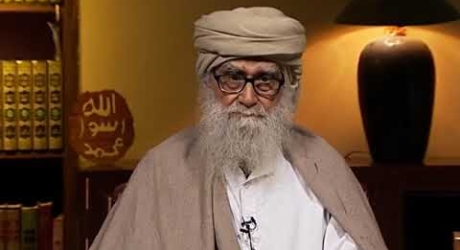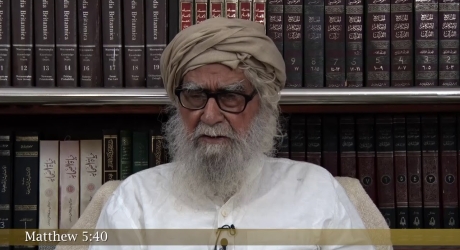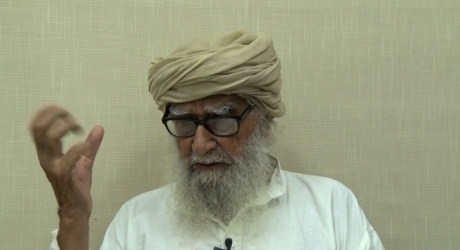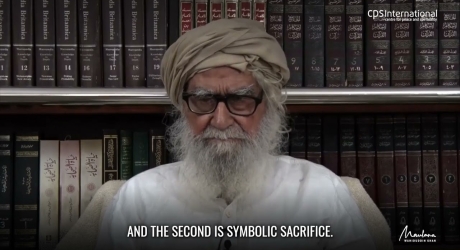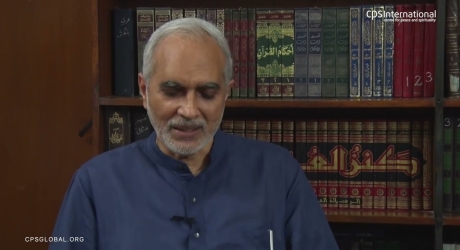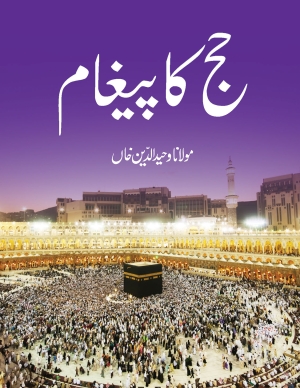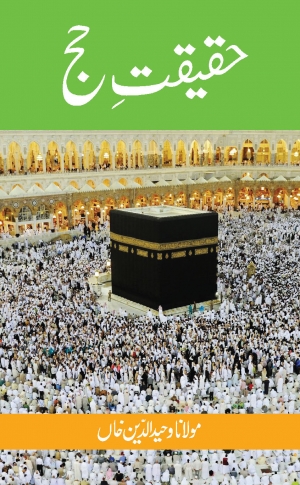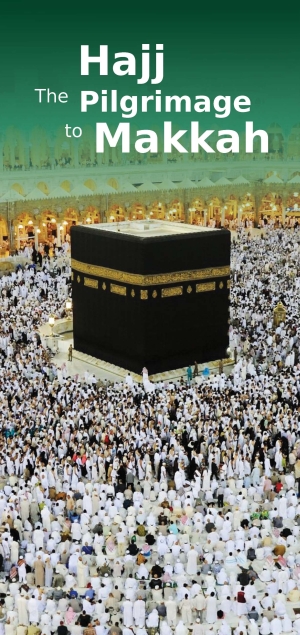The sacrifice of an animal on the occasion of Eid al-Adha every year has a significant bearing on human life. It symbolizes the moulding and making of a pure life. Today, however, this sacrifice has become an annual ritual. It remains alive only as a soulless religious tradition, as something to be done as a ritual on a particular day. It seems to have no impact whatsoever on people’s lives. However, if the sacrifice were made in its true spirit, our entire society would have been very different.
Sacrifice is not the end but the beginning of real action. Sometimes, a seemingly small thing turns into something of great significance. What may appear small may symbolize something of enormous importance. So is it with sacrifice on the day of Eid al-Adha? On the face of it, the sacrifice involves offering an ordinary animal in the name of God. However, it symbolises something great rather than an occasional, spiritless and meaningless custom. By sacrificing an animal on this day, we symbolize our determination to sacrifice everything, including even our lives, for a higher purpose.
God has made this world so that he who effaces himself alone is crowned with success. The sacrifice of an animal on the day of Eid al-Adha is an annual event that reminds us of this divine law. It is not something that has no connection with mainstream life. Sacrifice is, in fact, a universal law.
Featured Articles
Featured Videos
FAQs
The spirit of Eid al-Adha is a combination of two important states of mind—modesty through prayer and selflessness through sacrifice.
Prayer inculcates modesty in a person. A Muslim offers two units of namaz in the mosque. Besides the other prayers, the namaz of Eid includes the takbir which is recited more than once. Takbir means ‘God is great.’ The true significance of this takbir is that ‘God is great, and I am not great.’ So, the essence of takbir is modesty. In prayer as in all aspects of our lives, we should relate to God through humility and modesty, as God’s servants.
God is Great, and we are not great. God is the Giver, and we are recipients. In this sense, the only appropriate way to relate with God is through modesty. Even the word ‘Islam’ has the connotation of modesty. The word Islam means ‘submission’ or ‘surrender’. And submission or surrender indicates modesty. This means that Islam is a religion of modesty.
Modesty is, in fact, the culture of the universe. In the vast space, there are numerous bodies, and all of them are moving according to a destined path. They never stray outside their orbit. All the planets and stars, including our earth, are moving in a completely controlled and orderly way. They modestly follow the command of God. None of them ever rebels. None of them goes against the law of nature. They all wilfully submit to the law of nature. The whole universe presents a picture of modesty. Following the dictates of nature and Islam, man must also remain modest, both in front of God and to his fellow human beings.
The second important spirit of Eid al-Adha is sacrifice. This is an annual re-enactment of Prophet Abraham’s actions. Prophet Abraham dedicated his entire life to the cause of God. The full extent of Abraham’s dedication was demonstrated by his readiness to sacrifice even his own son for God. Every Muslim symbolically re-enacts their readiness to sacrifice for the cause of God on this day, as did the family of Abraham—the father, Abraham, the son, Ishmael, and the mother, Hajira. Referring to sacrifice, the Quran states:
“Their flesh and blood do not reach God: it is your piety that reaches Him.” (22:37)
From this verse of the Quran, it is clear that while it appears the animals are being presented before God, in reality, it is human beings who are presenting themselves before Him. In other words, through sacrifice we express our determination to slice off our egos for the sake of God, to sacrifice our own personal interests, and be firmly established in the path of righteousness. It is on these two fundamentals—humility and sacrifice—that the entire edifice of the faith stands.
Source: Spirit of Islam October 2018
Eid al-Adha is celebrated in the Islamic month of Zul Hijjah. ‘Eid al-Adha’ literally means ‘Eid of sacrifice’, as Muslims symbolically sacrifice an animal as an act of ‘qurbani’. It is a symbolic rehearsal of high values of faith, and it is required that these values be translated into practical life all year round.
Two practices are performed by Muslims on Eid al-Adha: congregational prayer in the mosque and the sacrificing of an animal. These two practices reflect the basic spirit of this festival, which is a combination of two important states of mind, modesty through prayer and selflessness through sacrifice.
Prayer inculcates modesty in a person. A Muslim offers two units of namaz in the mosque. Besides the other prayers, the namaz of Eid includes the ‘takbir’ which is recited more than once. Takbir means ‘God is great.’ The true significance of this takbir is that ‘God is great, and I am not great.’ So, its essence is modesty. Believers must modestly follow the command of God.
Animal sacrifice is performed on Eid al-Adha, as an annual re-enactment of Prophet Abraham’s actions. Prophet Abraham dedicated his entire life to the cause of God. The full extent of Abraham’s dedication was demonstrated by his readiness to sacrifice even his own son for God. Every Muslim symbolically re-enacts his readiness to sacrifice for the cause of God on this day. We must understand that a believer is presenting himself to God Almighty through this action. He is promising God that he will sacrifice his own ego for the sake of God, he will act with justice with others for the sake of God, and he will adhere firmly to righteousness.
Source: Spirit of Islam December 2018
Eid al-Adha is the second of the two festivals celebrated by Muslims worldwide. It is not only a celebration but a reminder of the spirit that each believer must adopt in his life. The special day begins with two units of namaz, to remind the believer of his duty towards God, his fellow human beings, and of his pledge to lead a pious life. This festival is a celebration of the Prophet Abraham’s sacrifices in the way of God. The festivities last for three days.
The celebration is a tribute to the Prophet Abraham’s unwavering faith in God. Prophet Abraham is the common patriarch of the Abrahamic religions, including Judaism, Christianity, and Islam. Abraham and his son Ishmael were both Messengers of God. Together, they built the Kabah in Makkah. Abraham established the rites of Hajj—the pilgrimage to Makkah—by calling humankind to the house of God.
God tested Abraham by asking him, in a dream, to sacrifice his son, Ishmael. When Abraham told his son about his dream, the latter replied, “O my father, do as you are commanded; and God willing, you will find me steadfast.” Abraham then led his son for the sacrifice. At that moment God called out to Abraham that he had already fulfilled His command. It had been a great trial of Abraham’s intention and God accepted this as his sacrifice. God sent a ram to be sacrificed instead.
After the fulfillment of God’s commands, Abraham was made a leader of humankind.
Abraham is an example of complete submission and devotion to God. His life embodies the abnegation of his will in obedience to God’s command. Just like Abraham, believers must be ever willing to forsake everything for the greater good.
This great act of Abraham is remembered by all Muslims every year on the 10 Dhul Hijjah (twelfth month of the Muslim lunar calendar), the day that concludes the main rites of the Hajj. On the occasion of Hajj, Muslims from all over the world throng to Makkah to emulate Abraham. There the pilgrims perform the animal sacrifice as Abraham did.
The feast of sacrifice reminds Muslims of Abraham’s readiness to sacrifice his beloved son. In a similar vein, believers reaffirm their belief in God and pledge themselves to parting with their precious belongings, if there is a need for it. The Quran describes these sentiments: “Truly my prayers, my sacrifice, my life and my death all belong to God, the Lord of the worlds.” (6: 162)
At the culmination of the Hajj rites, the pilgrims walk around the Kabah seven times, all the while praying and concentrating only on God. The pilgrims pray in the same language, Arabic, thus fostering universal love and brotherhood during Hajj. Of all the Muslim acts of worship, the Hajj is the most prominent. In one Hadith, the Prophet of Islam called it the ‘supreme act of worship’. It is not just the rituals that make it so, rather it is the spirit in which the Hajj is performed that is important. It is pertinent to relive the true spirit of worship that rests on introspection, self-purification, and embarking on a journey of leading a God-oriented life.
Source: Spirit of Islam September 2020


